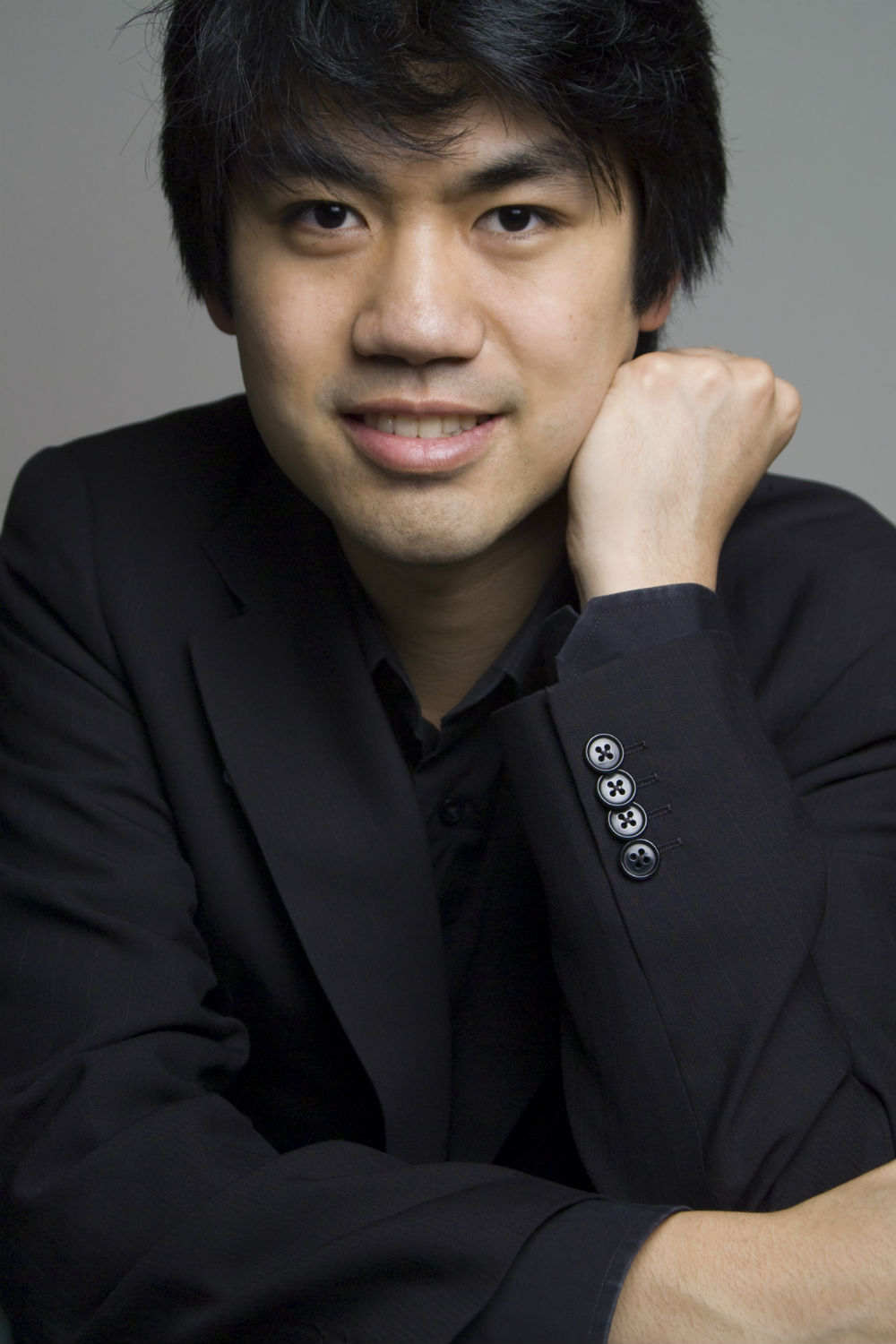by Jarrett Hoffman

Chen will begin the program with Brahms’s Variations on an Original Theme, Op. 21, No. 1, a work he also performed for the Cliburn Competition.
“It’s a great piece with a very expansive feel,” he said. “But people don’t play it often. It’s a little bit enigmatic. Emotionally it doesn’t feel the same as other Brahms pieces. I enjoy playing it a lot, and I like it that not many other people play it,” he said, laughing.
Next up is the set of six etudes (see below). “I had a bunch of etudes lying around, and I thought it would be more interesting to make a set out of them,” Chen explained. “They’re arranged in pairs. The Chopin and Debussy deal with the interval of thirds, the Scriabin and Bartók with larger intervals. The last two, Rachmaninoff’s ‘Funeral March’ and Ligeti’s ‘The Devil’s Staircase,’ are kind of in the morbid tone poem category. They’re three thematic pairings. They’re also mostly in chronological order, though the Rachmaninoff and Bartók are switched,” he added.
Chopin, Etude in G-sharp minor, Op. 25, No. 6 (“Thirds”)
Debussy, Étude No. 2 (“Pour les tierces”)
Scriabin, Three Etudes, Op. 65, No. 1 (“Ninths”)
Bartók, Studies for Piano, Op. 18, No. 1
Rachmaninoff, Études-Tableaux, Op. 39, No. 7 (“Funeral March”)
Ligeti, Études, Book II, No. 13 (“The Devil’s Staircase”)
“To start the second half, I was originally going to play the Ravel Sonatine, but I’m substituting Copland’s Piano Variations, and then I’ll finish off with Liszt’s arrangement of Wagner’s Overture to Tannhäuser.”
I asked Chen about his interest in composing, and he was very humble. “It’s something I’ve enjoyed doing since I was a kid. I’ve written some stuff, but nothing big, especially not for piano. I get really self-conscious with that. But I think being a pianist has made composing easier. As a pianist you’re so involved with harmony and melody that you get to see how composers make structure and phrases.”
He is also known for his transcriptions, one noted example being his own arrangement of Ravel’s La Valse (listen to his performance of it at the American Pianists Association’s 2013 Classical Fellowship Awards here). “Transcribing isn’t as original as composing,” he said, “but it helps you understand the composer and the piece.”
Chen told me about some of his other interests, including computer programming. “When I was studying at Juilliard, I took some classes at Columbia just for fun. I do a lot of reading and some projects of my own, and I have a lot of friends in the science and technology fields, so I also try to leech information off them.”
A related interest is video games. “Growing up I played games like Mario, Zelda, and Final Fantasy that take a lot of time — tens of hours, at least. I don’t have that kind of time nowadays.”
He told me that recently he and his girlfriend have been playing The Legend of Zelda: The Wind Waker. Distinctive for its cartoonlike, cel-shaded graphics, the game is also known for its musical element: as the protagonist, Link, you use a magic baton known as the Wind Waker to conjure short pieces of music and control the wind. “It’s a beautiful game,” said Chen. “It’s over ten years old, but it never looks like it because of its unique style.”
We closed our conversation with a more serious topic: the death of Freddie Gray and the riots in Baltimore. I asked Chen about musicians’ responsibility to improve the world.
“I think the social responsibility you have as a musician is the same one you have as a citizen: to be a good person and live by standards and morals that you believe in. But if you can use music as a tool to spread messages or help bring people together, then you should.”
Published on ClevelandClassical.com May 12, 2015.
Click here for a printable copy of this article



